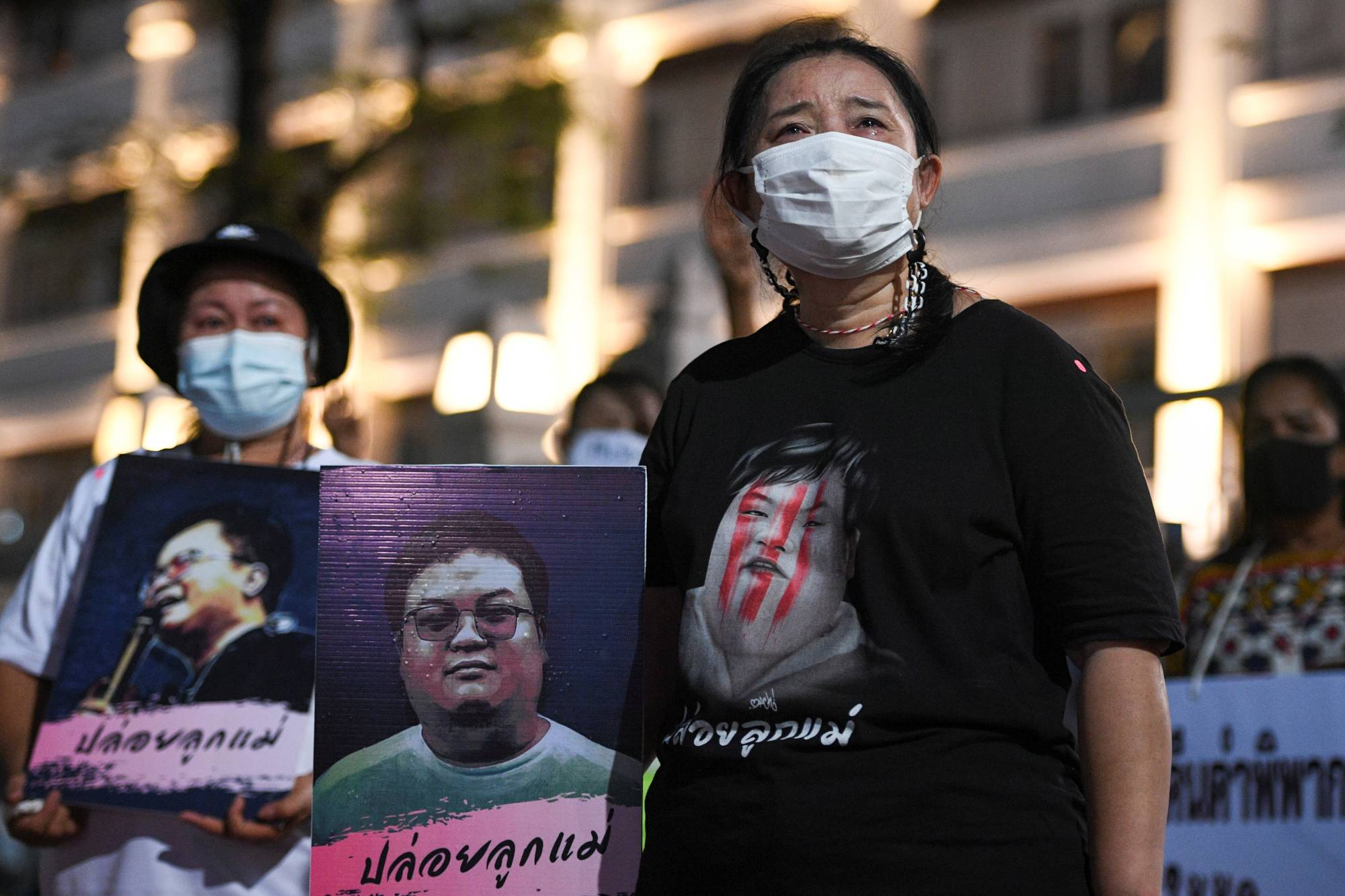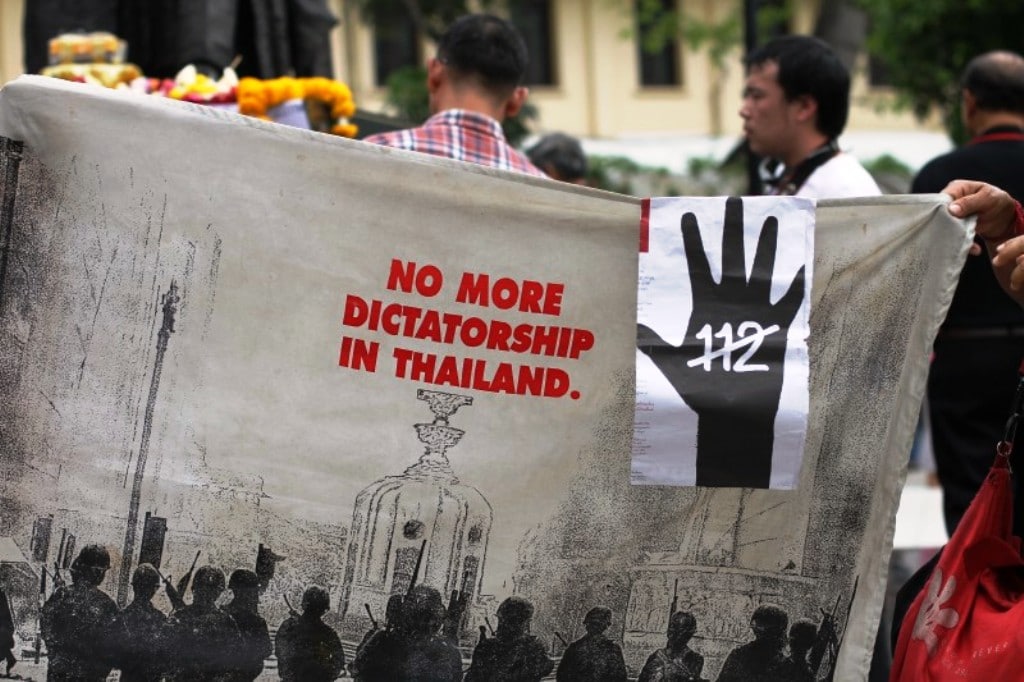News
Thailand Civil Rights Lawyer Charged with Article 112 “Lese Majeste” Denied Bail

Civil rights Lawyer and activist Arnon Nampa in Thailand has been denied bail by the Court of Appeal while appealing his four-year sentence for Lese Majeste, breaking Section 112 of the Criminal Code, the lese-majeste provision. Thai Lawyers for Human Rights (TLHR) announced the verdict on a X (previously Twitter) post.
According to the group, the court concluded that Mr. Arnon’s acts had done too much damage to the constitutional monarchy, taking into account the gravity of the indictment and his behaviours.
The court found that the defendant posed a flight risk if released on bail because he was facing a four-year jail sentence from a lower court.
Court also denied Mr. Arnon’s request for review of witnesses, saying there was sufficient evidence to sustain the earlier finding and no further review was necessary.
Krisadang Nutcharus, Mr. Arnon’s attorney, said he would discuss with his client whether or not to make another bail request or appeal the order to the Supreme Court.
On September 26th, the Criminal Court condemned Mr. Arnon, a lawyer with TLHR, to four years in prison and a fine of 20,000 baht for violating Section 112. The court found him guilty because of his participation in and remarks at a rally at Bangkok’s Victory Monument on October 14, 2020.
Mr. Arnon was imprisoned at the Bangkok Remand Prison until the outcome of the appeals court.
As Mr. Arnon had shown no signs of leaving or breaking the terms of his previous release on bail, TLHR had previously expressed confidence that bail would be granted. The organisation also pointed out that he had two kids of his own.
During the 2020 pro-democracy protests, Mr. Arnon, then 39 years old, broke several taboos by calling for a public discussion of the role of the monarchy.
Under Section 112, the penalty for insulting the monarchy can be as high as 15 years in prison. There are 13 further counts against Mr Arnon that fall under this same provision.
Since the Free Youth protests began in July 2020, 1,925 people have been punished for political participation and expression, according to data from TLHR through August 31 this year. There are at least 257 people in jail for allegedly breaking Section 112’s lese majeste law and Section 116’s sedition law.
Lese Majeste in Thailand
Lèse-majesté is a term often used to refer to the crime of insulting or defaming a monarch or the reigning sovereign. While the term itself is of French origin, it has been adopted and applied in various countries around the world. In the context of Thailand, lèse-majesté laws have been particularly prominent.
Lèse-majesté laws in Thailand are some of the strictest in the world. These laws make it illegal to criticize, defame, or insult the Thai monarch, members of the royal family, or the monarchy itself. Violation of these laws can result in severe penalties, including imprisonment.
In Thailand, the monarchy holds a special place in society, and the Thai people have a deep reverence for their king. As a result, any perceived insult or criticism of the monarchy is treated very seriously by the Thai authorities.
Article 112 of the Thai Criminal Code, often referred to as the “lese majeste” law, is a highly controversial and strict law that criminalizes insulting, defaming, or showing any form of disrespect towards the Thai monarchy. The monarchy holds a revered and sacrosanct position in Thai society, and Article 112 is intended to protect the institution from any form of criticism or dissent.
Here is an overview of Article 112 of the Thai Criminal Code:
Article 112: Whoever defames, insults, or threatens the King, Queen, Heir-apparent, or Regent shall be punished with imprisonment of three to fifteen years.
This law has been in place since the early 20th century but has been enforced with increasing severity in recent years, leading to international concern over its impact on freedom of speech and human rights in Thailand.
Key points and issues related to Article 112:
- Strict Punishments: The law carries severe penalties, including imprisonment, and has been criticized for its draconian nature. Individuals convicted under Article 112 may face lengthy prison sentences.
- Vague Language: The law’s wording is intentionally broad and vague, making it difficult to determine what constitutes an offense. This vagueness can be used to suppress political dissent or criticism of the monarchy.
- Abuse of the Law: Critics argue that Article 112 has been used to stifle free speech and suppress political opposition. Those who have been charged under this law include activists, journalists, academics, and ordinary citizens.
- Impact on Freedom of Expression: The law has a chilling effect on freedom of expression in Thailand. Many individuals self-censor to avoid potential legal consequences, leading to a climate of fear and silence.
- International Criticism: Thailand has faced significant international criticism for its use of Article 112. Human rights organizations and foreign governments have called for its reform or abolition, citing concerns about freedom of expression and political repression.
- Reform Debates: There have been ongoing debates in Thailand about the need to reform or abolish Article 112. Some argue for its preservation, emphasizing the importance of protecting the monarchy, while others advocate for greater freedom of expression and a more limited application of the law.
- Amendments: As of my last knowledge update in September 2021, there had been discussions about potential amendments to Article 112, but no significant changes had been made at that time. The political climate in Thailand is fluid, and legal developments may have occurred since then.
It’s important to note that the situation in Thailand is subject to change, and political developments can impact the enforcement and interpretation of Article 112. It is advisable to consult up-to-date sources for the latest information on this law and its application in Thailand.






























